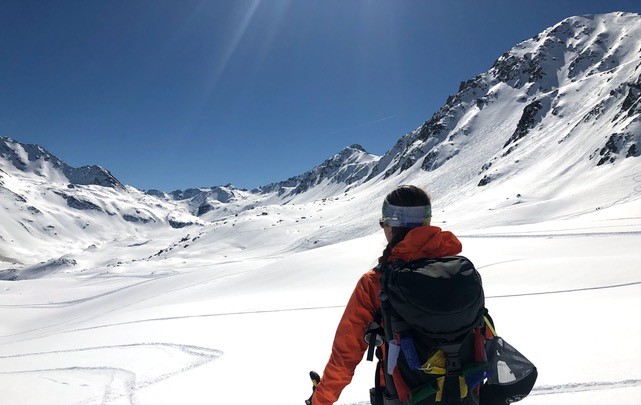Building My Base Layer: Self-Care
EDCare Recovery Advocate Guest Blog | Jill W.
From the moment of conception, elders nourish us. From microscopic beings to tiny, fragile humans, grown-ups hovered, held us, cradled us to sleep, and fed us one tiny morsel at a time. As toddlers, our every syllable and every step was cheered. With time and the trail life takes, nurturing from others tends to be weaned off; sometimes too quickly, sometimes not quickly enough. With each trip around the sun and every moment in between, we are constantly changing yet what remains is a fragile being in need of nurturing.
We are taught silly songs to sing and odes to recite yet rarely are we taught ways to nurture ourselves holistically. More important than what is traditionally taught in our formative years, learning to nurture ourselves to be at our best, while protecting our well-being and happiness tends to be missing from most classroom curriculum. Perhaps due to its intangible nature, we tend to develop and succumb to the fallacious belief that inner strength comes from natural, unteachable traits. Learning to love ourselves as we are, to be resilient, altruistic, happy, balanced, grateful and to find personal purpose cannot come from a textbook yet exploring and discovering what brings inner peace has nowhere near the weight of the score on a math test. Permission slips allowing for self-compassion or taking life at a gentle pace are not handed out freely. While western society tends to confuse self-care with selfishness, exploits perfection and tough love, we are often without tools to self-nurture. Encouraging self-love and a growth mindset, where stumbles and falls are learning opportunities, is more valuable than any test score. Self-care is a tool that can help us show up more fully.
Best, most, fastest, strongest, highest, lightest, all omnipresent superlatives which bombard every screen, signboard and radio wave. Human physiology has evolved in such a way that we are designed to want to fit in with the tribe. Cultural conditioning conflicts with self-nurturing leading many on a rocky trail greatly influenced by the approval of the tribe. Stigma does not feed self-kindness or compassion. Prioritizing personal needs can feel selfish and indulgent and is often avoided for fear of judgment.
Loving ourselves can be arduous. Being authentic, we fear appearing weak and letting others down. Learning what I need to do to take care of myself and dialing into what works for me, not anyone else, is me taking an active role in protecting my well-being. By improving my self-awareness, I find refuge from my critical mind, enhance acceptance of my trail and strengthen the relationship with myself. As unique as we all are so too is self-care; different for all of us.
Approaching self-care with a lens of perfection or an object of comparison would make it redundant. Being in touch with the fallibility of all humans, self-compassion recognizes suffering is part of the shared human experience. Though pain triggers are unique, we all feel pain in difficult times. When feeling overwhelmed or inadequate I tend to lose sight of what I have in common with others. Rather than focusing on how different I am or all the ways I do not measure up, when I view the similarities and all that comes as are part of shared human experience, I am being compassionate. I struggle yet strive to treat myself as I would a friend. Offering a hug, an ear, a random act of kindness, standing up for a friend when he is down, heartbroken when another’s feels shattered, encouraging others to see light the in darkness, offering myself such encouragement, love and patience is not selfish. As water and calories, self-care is critical sustenance. Self-compassion is light guiding me towards of place of acceptance, worthy just as I am.
Lighting a candle, taking a bath or a simple hallway timeout can bring new oxygen when surrounding air feels thin. What energizes one does not energize all. Going to a movie, a spa or talking on the phone may bring nourishing comfort for some yet provoke anxiety for others. Mindfulness is my base layer. It is becoming my go-to for comfort and protection. Mindfulness allows me to see experiences with openness and clarity of my needs. When I am aware of what I do, why I do it, how it feels, and what the outcomes are, I can face all that comes along my trail without reactivity with increasing ease and acceptance. Saying no, daring to set boundaries, not basing my own worthiness on others’ approval, taking that mindful walk, reflecting in my journal, a jaunt in the jungle, small signs of progress, first steps of compassion.
Self-care is fuel necessary to replenish personal resources. A walk in the woods, a run in the forest, meditation in a meadow, each time I make time to turn inwards is a small spoonful of self-compassion. Like base layers and every single step climbing a mountain, small things matter.
Read More From Jill: Time To Flourish

